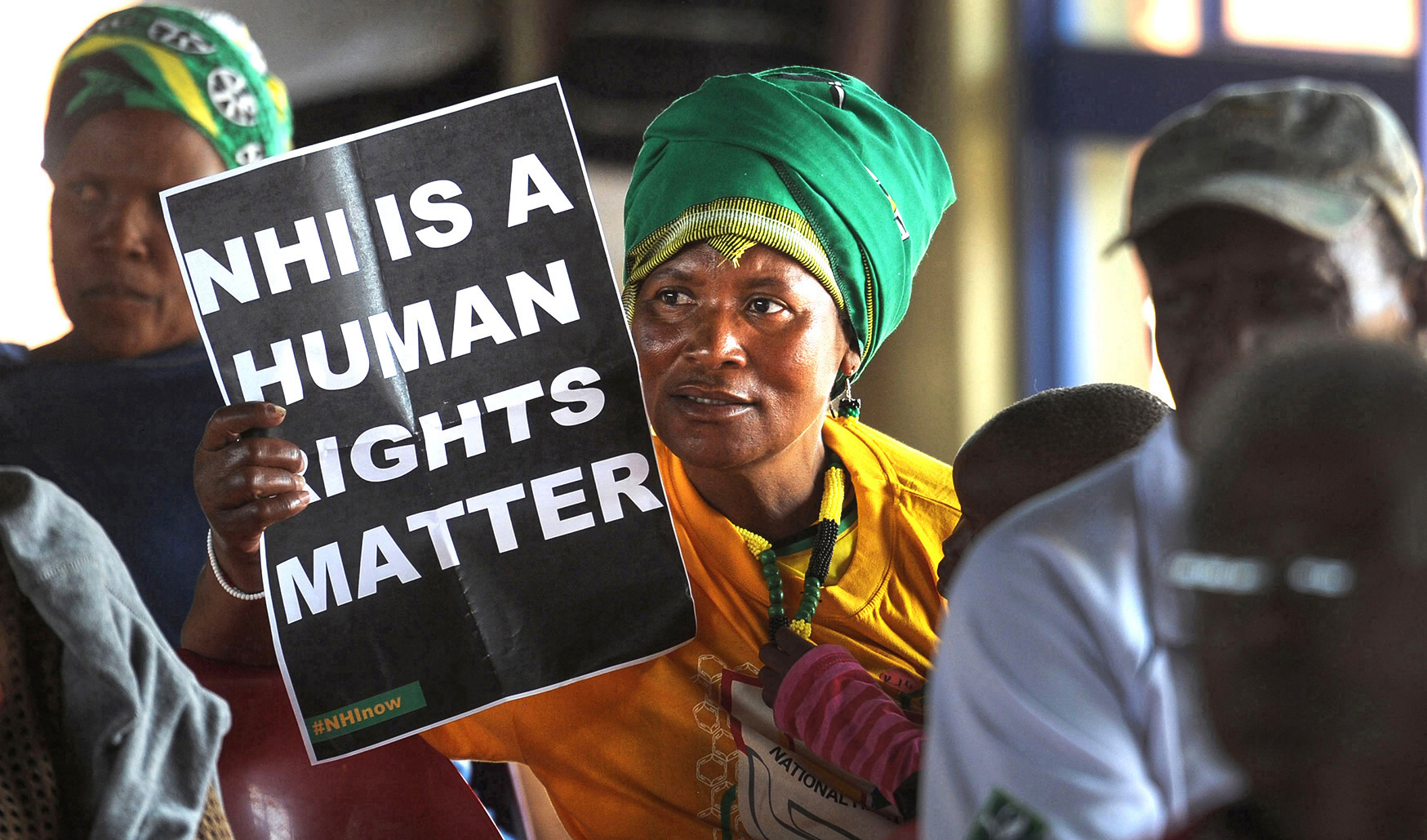The South African Medical Association (Sama) is launching a legal challenge to the National Health Insurance (NHI) Act in the high court, contesting multiple provisions in the Act that will “severely prejudice both doctors and patients alike”.
Sama is a professional association for public and private sector medical practitioners. At a media briefing on Tuesday, Sama’s chairperson, Dr Mvuyisi Mzukwa, described the organisation’s litigation as the “most comprehensive constitutional challenge to the National Health Insurance Act to date”.
“Sama is not opposed to the goal of universal health coverage. We strongly believe in equitable, high-quality healthcare for all South Africans. However, the NHI Act risks collapsing our healthcare system rather than strengthening it,” he said.
“Our litigation is about protecting patients, ensuring doctors can continue to provide care, and preventing the state from implementing a dangerously flawed system that could do more harm than good. The urgency of this legal challenge cannot be overstated.”
‘Real-world implications’
Mzukwa said that Sama’s legal action was driven by the “real-world implications” of the NHI Act, particularly the bureaucratic and structural failures it could introduce.
“The average South African will be required to register as an NHI user before they can receive treatment … a process that could take years to complete nationwide. Registration can only occur at accredited primary healthcare providers. Patients will then be forced to seek care at their registered facility first, even if that facility is overloaded or incapable of providing appropriate treatment,” he said.
“There is no clarity on how patient transfers will be managed in the system. Ironically enough, restrictions to one’s area of registration undermine the very principle of universal access to healthcare coverage.”
Other key issues Sama is raising in its legal challenge include:
- The handling of complaints about poor service delivery by a single, centralised investigative unit within the NHI fund’s national office — a mechanism Sama views as “wholly inadequate” for the effective resolution of patient grievances given the scale of the healthcare system;
- A lack of clarity in the Act about which services will be covered by NHI;
- The unclear system for the procurement of medical supplies under NHI, which raises “serious concerns about supply chain management and stock shortages”;
- The consequences the Act will have for healthcare professionals, who will be required to meet “impossible accreditation standards” and work well beyond their normal capacity for less income; and
- A lack of provisions in the Act to insure private sector doctors against medico-legal claims, despite these doctors operating within NHI protocols.
“[The NHI Act] represents a major step back in terms of healthcare access. Key decision-making powers will be centralised at the national office or national level, with no assessment of whether national government structures have the capacity to manage this enormous responsibility,” said Mzukwa.
“Sama’s case is supported by leading experts who have assessed the financial, operational and ethical implications of the NHI.”
 Dr Mvuyisi Mzukwa. (Photo: Supplied)
Dr Mvuyisi Mzukwa. (Photo: Supplied)
Last resort
Sama raised its concerns about NHI at various stages before the Act was signed into law in 2023, said Mzukwa.
“Our legal challenge today represents the necessary step after exhausting all available channels for constructive input over more than a decade,” he said.
In February, Sama — alongside the Progressive Health Forum and the SA Private Practitioners Forum — pushed a joint proposal to reform the healthcare system as an alternative to NHI. The three organisations, under the umbrella of the Universal Healthcare Access Coalition (Uhac), said their proposal provided “pragmatic, scalable and equitable solutions” to enhance healthcare access in South Africa. The Uhac report was sent to President Cyril Ramaphosa for review.
Read more: Healthcare coalition proposes ‘pragmatic’ reforms for SA, says NHI ‘unworkable’
Dr William Oosthuizen, the head of legal at Sama, said there had been “what we believed to be constructive engagements behind the scenes, where we had tried to see whether the President [Ramaphosa] would maybe reconsider some of the actions that were taken… But, unfortunately, that doesn’t seem to be the case, and we’re left with no other option but to bring this litigation.”
Health department notes Sama’s litigation
Foster Mohale, the National Department of Health spokesperson, said the department had noted Sama’s decision to litigate the implementation of the NHI Act.
“The department will respond accordingly through legal channels for what we believe is part of the transformative agenda to address the legacy of the apartheid system,” he said.
Mohale said Sama’s view that NHI was unworkable and unaffordable was “not factual”, and the organisation did not represent the “views of the majority of South Africans”, who depended on an underfunded public health system.
“Parliament conducted public hearings countrywide on the NHI Bill as part of a public consultation process where individuals and stakeholders were afforded an opportunity to air their views, before it was passed by the House [National Assembly] and assented to by the President.
“Unfortunately, in this case, the privileged minority could not decide for the disadvantaged majority, who equally deserve a better life,” said Mohale.
“The government has an obligation to remove any barriers to accessing quality and affordable healthcare for all… People have the right to receive healthcare based on their needs, not affordability, because access to healthcare is a fundamental human right in South Africa.” DM




 Dr Mvuyisi Mzukwa, SAMA chairperson. (Photo: Supplied)
Dr Mvuyisi Mzukwa, SAMA chairperson. (Photo: Supplied) 